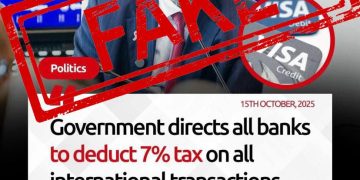Gold for Oil Policy: There’s enough gold reserves to sustain deal – BoG asserts
Bank of Ghana (BoG) has calmed the fears of Ghanaians over government’s ability to provide enough gold for its Gold for Oil policy.
The Central Bank says the country has a sufficient quantity of gold reserves to sustain the policy.
The Director of Financial Market at the Bank of Ghana, Stephen Opata made this known on Monday, January 16, when he appeared before the Public Accounts Committee (PAC).
According to him, there is no cause for concern as the Central Bank is well-positioned to meet the demand for 160,000 ounces of gold per month under the deal.
“As for the quantities, based on the production numbers we saw last year, gold has picked up. We believe that we can buy enough gold to sustain the program.
“I must say that the numbers we are currently looking at is about 160,000 ounces per month and that will represent about 50 to 60 per cent of the consumption of the country. According to what PMMC indicates, I think we have volumes to support the program,” Mr Opata said.
The first consignment of oil under the policy arrived at the Tema Port on Monday.
The 40,000 metric tons of oil from the United Arab Emirates was subsequently discharged to Bulk Oil Storage and Transportation (BOST).
BOST will subsequently formulate plans for its distribution and sale to the Oil Marketing Companies.
The move is part of the government’s efforts to reduce fuel prices and reserve the country’s forex.
However, some Ghanaians have raised concerns about the government’s ability to sustain the policy.
With this concern, the Bank of Ghana has calmed their fears.
Gold for Oil policy to reduce pressure on forex markets
Meanwhile, the Governor has backed the barter of gold for oil policy and believes if it goes well, would help lessen private sector pressure on the foreign exchange market.
Government last year announced a new policy to buy oil products with gold rather than US dollar reserves. The move, officials say is meant to tackle dwindling foreign currency reserves coupled with demand for dollars by oil importers, which is weakening the local cedi and increasing living costs.
Appearing before the Public Accounts Committee of Parliament on Monday to answer questions on the foreign exchange receipts and payments for half year and annual year for June 2020 and the final report, December 2020, Governor Addison was also asked a public interest question on the gold for oil programme.
He told members of the committee that “The idea behind it is that if we are able to have this government-to-government arrangement for crude oil we probably might get it at a cheaper price than what the private sector can do and also because the central bank had already started gold purchasing to boost our reserves, we already have an arrangement where we getting gold for reserves.
The idea is to use that part of it to support the oil operation and if this government-to-government arrangement works well, the idea is that the private sector -that is trying to chase foreign exchange in the market will finance their oil imports, will not be adding pressure to the foreign exchange market, those are the two benefits; first government to government benefit of being able to get crude oil at lower prices and then reducing private sector pressure on the foreign exchange market.”








